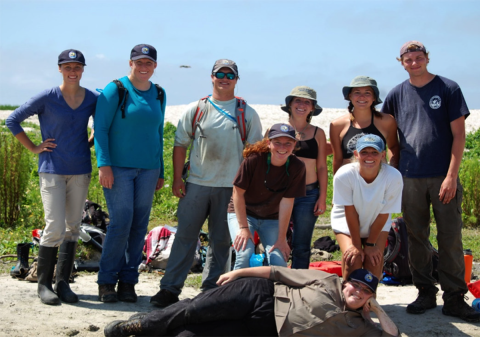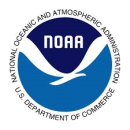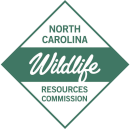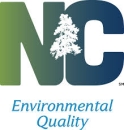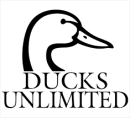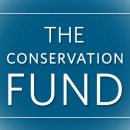Volunteering
Volunteering for the U.S. Fish and Wildlife Service is fun and rewarding in many ways. Master new skills. Meet new friends. Enjoy a sense of accomplishment from doing your part to further wildlife conservation for the pleasure of generations to follow.
The refuge’s diverse programs utilize volunteers of all ages and abilities. Common volunteer activities include staffing the visitor centers, helping with guided tours, developing outreach and informational materials, and maintaining grounds, trails, and signs. At times, volunteers may be invited to help with biological surveys or other one-time volunteer events. Whether the jobs are labor intensive projects for scout or church groups, full-time internships, or regular weekly or monthly assistance, there are always needs in the various refuge program areas. Even if you can't come to one of the refuges in person, you might be able to help by being a Volunteer from a Distance. There may be web-related or non-internet related writing projects that need assistance. Contact Volunteer Coordinator Chrissea Rothrock, christina_rothrock@fws.gov to learn more!
Resident Volunteers
Alligator River NWR has space for RVs (Resident Volunteers) who live in their own recreational vehicle on pads we provide on the refuge. We provide water, electric, sewage hook-up and laundry facilities. In return for these provisions, a couple must commit to 24 hours of service per week or a single person must commit to 32 hours of volunteer service per week. For more information, contact Volunteer Coordinator Chrissea Rothrock, christina_rothrock@fws.gov.
Internships
Alligator River and Pea Island National Wildlife Refuge's intern program provides unique experiences for college students and graduates geared towards careers in the environmental sciences. Internships rotate through different program areas, exposing interns to many aspects of managing a refuge. Interns assist with visitor services, biological monitoring, and maintenance activities. Interns present public outreach programs such as guided canoe tours and open-air tram tours as well as educational programs on species such as black bears and sea turtles. They also help staff visitor centers as needed. Biological duties include installing beach nesting bird protection areas, mapping and treating invasive plant species, sea turtle monitoring, shorebird surveys and water level monitoring. All interns assist with refuge maintenance duties, including mowing, trimming, trail work, sign maintenance, stocking refuge brochures, trash and recycling collection and assisting other staff with a variety of projects.
Interns will receive on-the-ground training for all duties, including the safe operation of ATV/UTV's, mower use, and field safety. Interns work independently, in pairs, or with refuge staff or volunteers. Physical requirements can include the ability to lift and paddle canoes, carry up to 40 pounds in the sand, and walking miles in the sand with outside air temperatures in the upper 80’s in humid conditions. All applicants must have a valid driver’s license and had it for at least one year. A refuge vehicle will be provided for work duties. A personal vehicle is required for transport from housing to the refuge office.
We seek enthusiastic team members! It is more important for us to find candidates with good references and positive attitudes than previous technical experience.
General refuge internships run from mid-May until mid-August, when many interns need to return to college. We often ask one or two interns each year to stay through September and October to assist with Wings Over Water Wildlife Festival. Interns typically work 40- hour weeks. Weekend work may be required.
To Apply
Resumes are accepted year-round. The deadline for Summer 2025 applications is January 6, 2025. It is highly recommended that you apply as early as possible.
You will increase your chance of being selected if you’re open to internships at any of the three duty stations in eastern North Carolina (Alligator River and Pea Island National Wildlife Refuges, Pocosin Lakes National Wildlife Refuge, and Mattamuskeet National Wildlife Refuge). In most cases, to be considered for an internship position, an applicant must be able to stay a minimum of three months. However, in rare cases, slightly shorter internships have been scheduled.
Internships are volunteer positions. However, housing and a living allowance are provided.
To apply, mail a resume, contact information for three references, and a cover letter indicating your specific interests and dates available to Sarah Toner, sarah_toner@fws.gov. In your application, indicate your specific interests and describe your background and experience relating to the following:
- Wildlife identification and surveys
- Outdoor field work
- Public interpretive programs and presentations
- Communication with a range of audiences
- Navigating outdoors and orienteering
- Canoeing
- Operation of ATVs & UTVs
- Maintenance (trail and other)
- Using hand tools, power tools, and riding mowers
Make sure to provide your dates of availability!
Our Partners
Nature does not recognize human-made boundaries. In order to conserve our natural and cultural resources effectively, we must work with others to bridge these boundaries. Partnerships foster creative solutions to challenging situations and often the results are greater than the sum of the parts.

